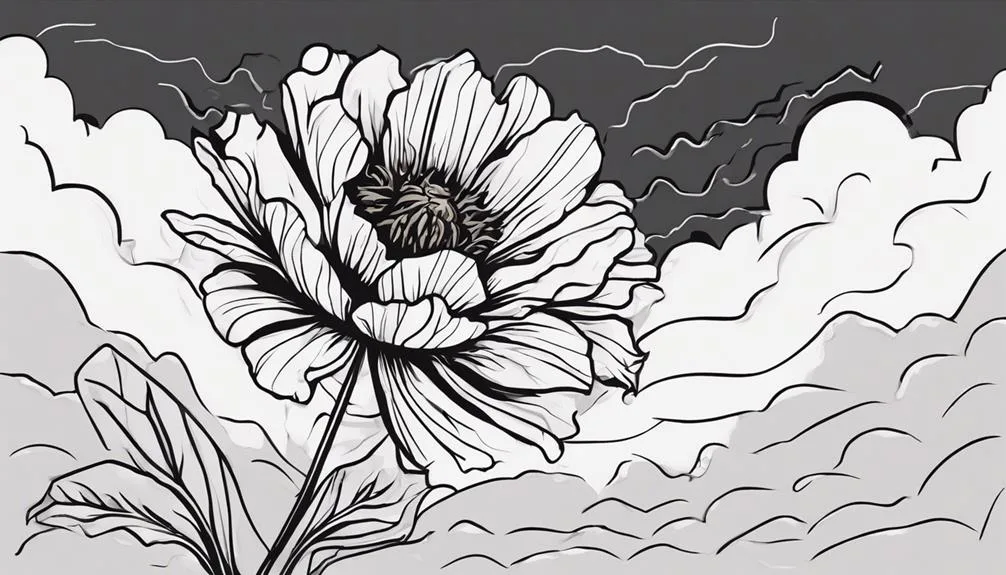Is your relationship going through a rough patch, or is it toxic? Toxic signs can start small but quickly get worse if ignored. Understanding these red flags is crucial for your well-being. From constant criticism to being isolated from loved ones, each sign reveals important dynamics.
But what happens if you ignore these warning signs?
Constant Criticism
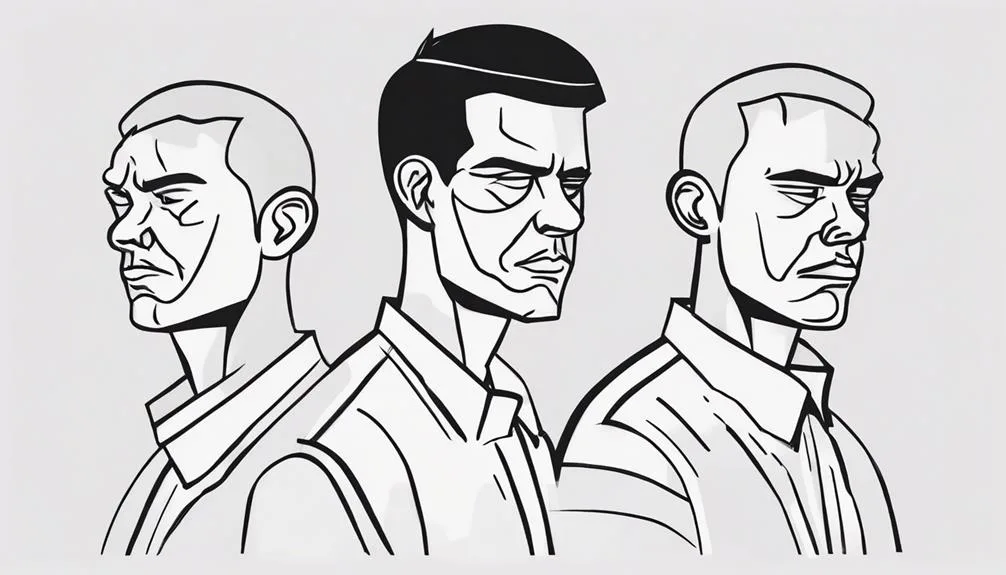
If your partner constantly criticizes you, it may be a sign of a toxic relationship. Constant criticism can wear down your self-worth, leaving you feeling inadequate and insecure. Recognizing that this behavior isn’t a reflection of your value as a person but rather a reflection of your partner’s issues is crucial.
In toxic relationships, criticism is often used as a tool for gaslighting and control. Your partner may belittle your achievements, undermine your opinions, and make you doubt yourself. This manipulation can lead you to question your reality and erode your confidence over time.
Lack of Trust
When trust is lacking in a relationship, it can create a sense of insecurity and uncertainty that can deeply impact your emotional well-being. Trust is the foundation upon which relationships are built, and when it falters, it can lead to a myriad of issues. Trust issues can stem from various sources, including past betrayals, lack of transparency, or inconsistent behavior. Rebuilding trust takes time, effort, and a willingness to be vulnerable with one another. Communication is key in this process, as it allows both partners to express their feelings, concerns, and intentions openly.
Trust issues can lead to constant questioning and suspicion.
Rebuilding trust requires both parties to be honest and reliable.
Communication is essential to address underlying issues and rebuild trust.
Building trust involves showing empathy and understanding towards each other’s feelings.
Reestablishing trust takes patience and a commitment to work through the challenges together.
Isolation From Loved Ones
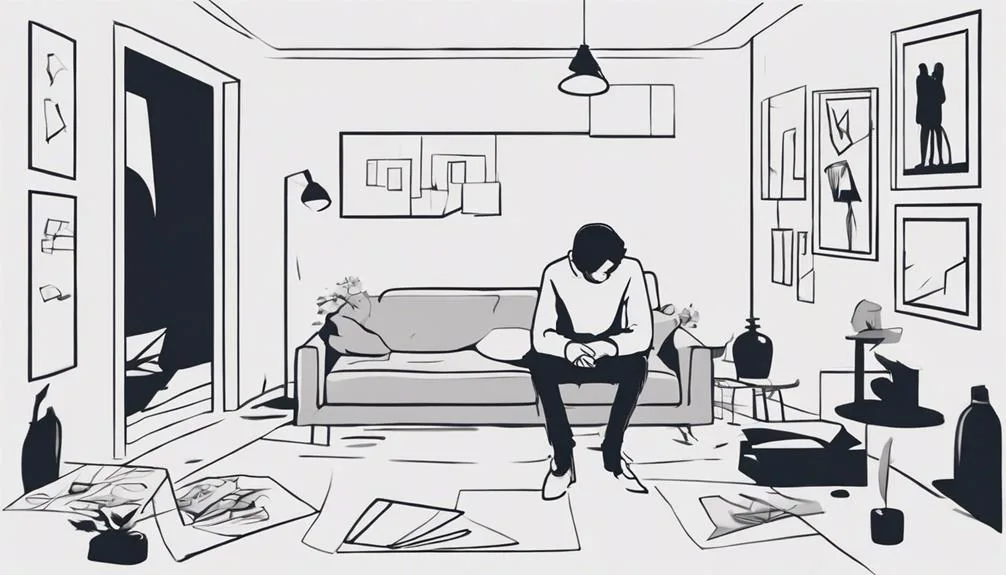
Are you feeling increasingly isolated from your loved ones in your relationship? Recognizing signs of isolation is crucial as they can indicate a toxic dynamic. Emotional detachment and social withdrawal are common in such situations, leading to a sense of loneliness and disconnection from those who care about you. This isolation can manifest in various ways, such as spending less time with family and friends, feeling hesitant to reach out for support, or experiencing relationship strain and family estrangement.
| Signs of Isolation From Loved Ones |
|---|
| 1. Spending less time with family and friends |
| 2. Feeling hesitant to reach out for support |
| 3. Experiencing relationship strain and family estrangement |
If you find yourself increasingly isolated from your support system, it’s crucial to address this issue. Healthy relationships should not make you feel cut off from the people who matter to you. Consider seeking help or talking to a trusted individual about your feelings of isolation to navigate this challenging situation.
Manipulative Behavior
Feeling increasingly isolated from your loved ones can sometimes be a result of manipulative behavior in a relationship. Manipulative behavior can take various forms, creating a sense of confusion and distress.
Here are some key aspects essential in recognizing manipulative behavior:
- Gaslighting Tactics: Be aware of subtle manipulation techniques aimed at making you doubt your own feelings, perceptions, and memories.
- Emotional Manipulation: Pay attention to emotional manipulation tactics that seek to control or influence your emotions for the manipulator’s agenda.
- Coercive Control: Watch out for behaviors that limit your freedom and autonomy, leaving you feeling trapped or powerless in the relationship.
- Power Dynamics: Evaluate how power is wielded in the relationship; unhealthy power dynamics can lead to one partner dominating the other.
- Isolation Techniques: Notice if the manipulative partner tries to isolate you from friends and family, creating dependence on them for validation and support.
Recognizing these signs is essential in maintaining your well-being and addressing manipulative behavior in a relationship.
Emotional or Physical Abuse
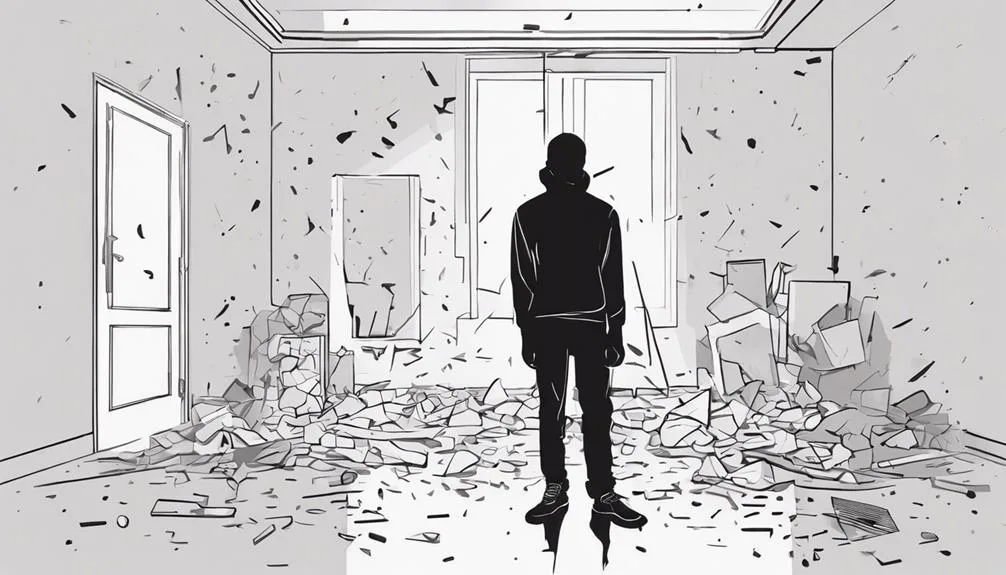
If you’re feeling scared, controlled, or belittled in a relationship, it’s important to recognize these signs of abuse.
Seeking help and support isn’t a sign of weakness but a brave step towards your well-being and safety.
Recognizing Abuse Signs
Recognizing signs of abuse, whether emotional or physical, in a relationship is important for your well-being and safety. Here are some key indicators to be aware of:
- Gaslighting Tactics: Pay attention to manipulative behaviors that make you doubt your own thoughts and feelings.
- Toxic Patterns: Identify recurring negative behaviors that erode your self-esteem and happiness.
- Red Flags: Take note of warning signs such as controlling behavior or extreme jealousy.
- Power Dynamics: Evaluate if there’s an imbalance of power where one person exerts control over the other.
- Physical Abuse: Be vigilant of any form of physical harm or threats of violence in the relationship.
Recognizing these signs early can help you take the necessary steps to protect yourself and seek support.
Seeking Help and Support
If you find yourself grappling with emotional or physical abuse in a relationship, reaching out for help and support is an important step towards safeguarding your well-being and reclaiming your sense of agency.
Therapy options and support groups can provide a safe space for you to process your experiences, heal, and learn coping strategies. Online resources offer valuable information and guidance, while community outreach programs connect you with professionals who can offer assistance tailored to your needs.
Control and Dominance
In a toxic relationship characterized by control and dominance, one partner may consistently dictate the other’s actions and decisions, leading to a sense of powerlessness and diminished self-worth. It’s important to recognize the signs of control and dominance in a relationship to address them effectively. Here are some key indicators to look out for:
- Constant Monitoring: Your partner insists on knowing your whereabouts at all times, monitoring your activities, and questioning your every move.
- Isolation Tactics: They try to isolate you from friends and family, making you dependent on them for social interaction and emotional support.
- Manipulative Behavior: They use manipulation and guilt-tripping to get their way, making you feel obligated to comply with their demands.
- Intimidation: Your partner uses threats, raised voices, or aggressive behavior to intimidate and control you.
- Micro-Management: They micromanage your life, from your appearance to your daily schedule, leaving you with little autonomy.
Unwillingness to Communicate
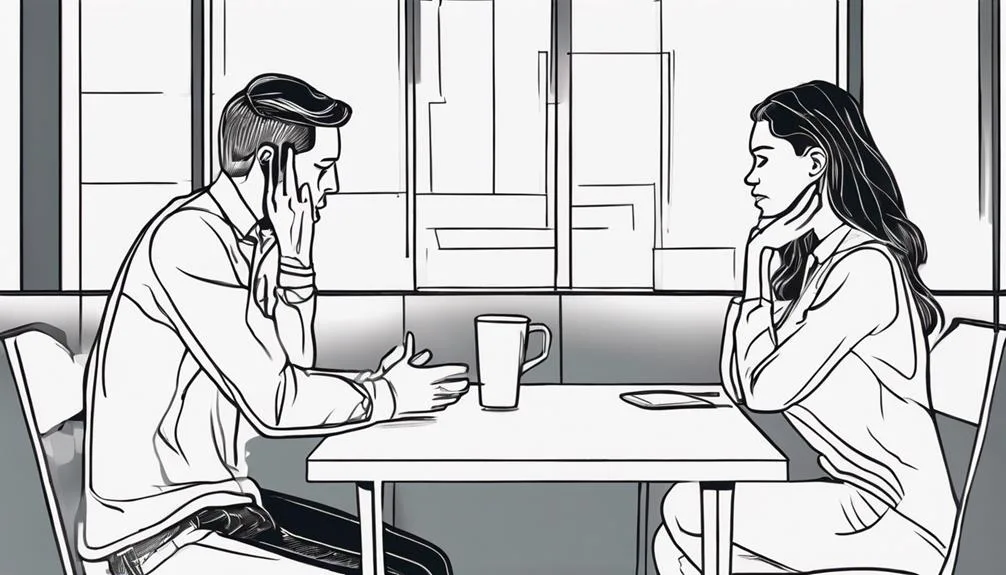
Sometimes in a relationship, silence can speak volumes.
When communication becomes a challenge, it often leads to distance growing between partners.
Avoiding those tough conversations and shutting down emotionally can create barriers that are hard to break down.
Silence Breeds Distance
Silence between partners can often lead to a growing sense of emotional distance and disconnection in a relationship. When communication breaks down, unresolved issues can fester, leading to growing resentment. Here are some key points to bear in mind:
- Avoiding tough conversations: Ignoring difficult topics can create a barrier between you and your partner.
- Lack of understanding: Not speaking up can prevent your partner from truly understanding your thoughts and feelings.
- Increased tension: Silence can create a tense atmosphere, making it harder to address issues constructively.
- Feeling unheard: When communication is lacking, it’s easy to feel like your voice isn’t being heard.
- Lost connection: Over time, silence can erode the emotional bond that holds a relationship together.
Avoidance of Tough Talks
Choosing to avoid difficult conversations can create a barrier that hinders the growth and connection within your relationship. Communication barriers often stem from a fear of confrontation or discomfort, but addressing tough topics is vital for maintaining a healthy partnership.
By sidestepping challenging discussions, you may inadvertently build walls that isolate you from your partner emotionally. It’s important to remember that open and honest communication is the foundation of any successful relationship.
Avoiding confrontation can lead to unresolved issues festering beneath the surface, ultimately causing more significant problems down the line. Embrace the discomfort, and approach tough talks with empathy and understanding to break down these barriers and strengthen the bond you share.
Closed off Emotionally
When you find yourself emotionally closed off and unwilling to communicate, you create a barrier that can impede the connection and growth in your relationship. It’s crucial to understand the impact of withdrawn behavior and emotional detachment on the health of your relationship.
Here are some insights to ponder:
- Lack of Understanding: Not sharing your thoughts and feelings can lead to misunderstandings.
- Emotional Distance: Keeping your emotions bottled up can create distance between you and your partner.
- Stagnation: Avoiding communication hinders the progress and evolution of your relationship.
- Unresolved Issues: Refusing to address problems can result in unresolved conflicts.
- Isolation: Emotional detachment can make you feel isolated even when you’re with your partner.
Conclusion
Remember, your well-being is paramount. Trust your intuition and prioritize your happiness.
Seek support and guidance to navigate out of toxic relationships. Your future holds the promise of healthier connections and a brighter tomorrow.
Take the first step towards a life filled with love, respect, and positivity. You deserve nothing less.

